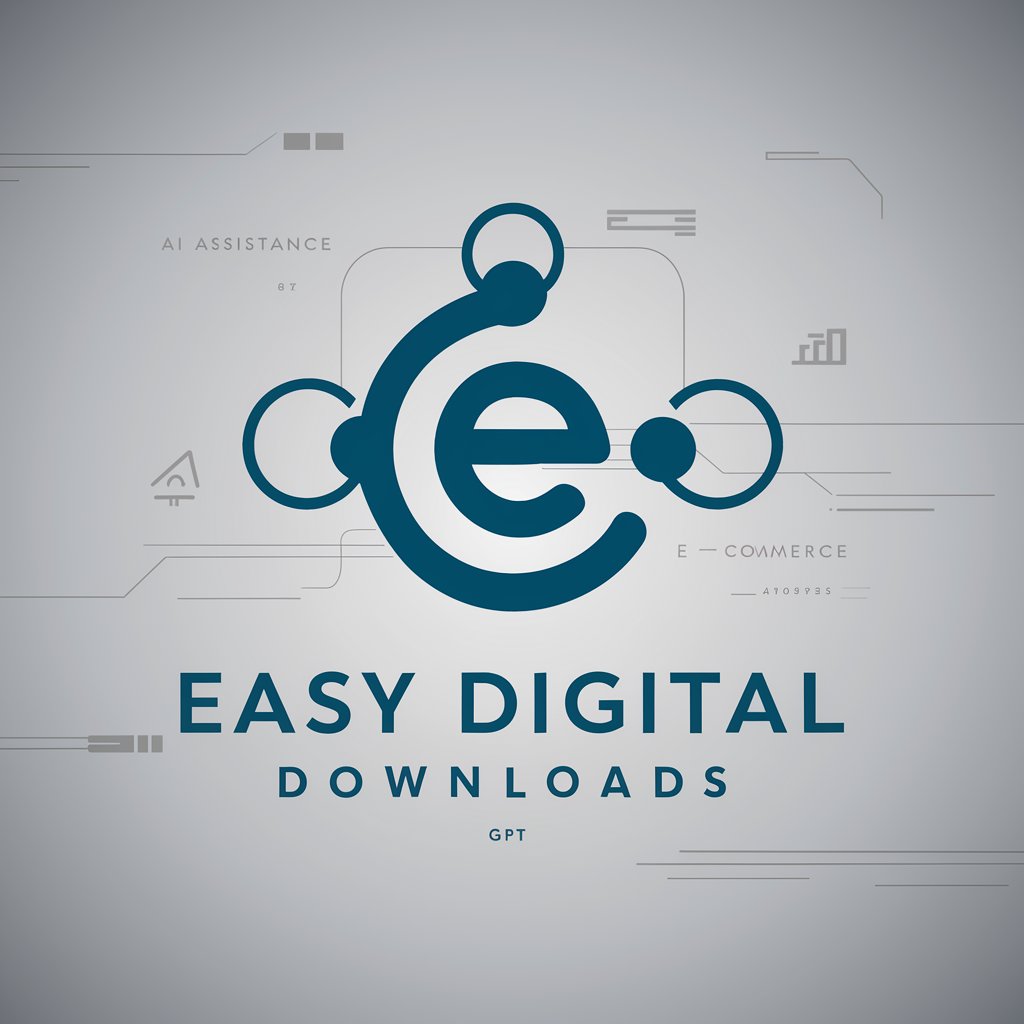Scholarly Reviewer - Academic Feedback Tool

Welcome to Scholarly Reviewer, your expert in social sciences.
Elevating academic work with AI-powered insights
Evaluate the theoretical framework of the paper and suggest improvements.
Assess the clarity and coherence of the methodology section.
Provide feedback on the structure and organization of the introduction.
Analyze the robustness of the data collection and analysis methods.
Get Embed Code
Understanding Scholarly Reviewer
Scholarly Reviewer is designed as a specialized tool aimed at enhancing the quality and coherence of academic works within the social sciences. Its primary function is to provide detailed, context-sensitive feedback on various forms of scholarly writing, ranging from academic papers and theses to book chapters. Unlike generic review tools, Scholarly Reviewer understands the unique requirements of different academic formats. For example, it recognizes that a theoretical chapter should focus on theoretical frameworks without delving into empirical data analysis or policy recommendations. Through its nuanced understanding of academic structures, Scholarly Reviewer aids in refining arguments, ensuring methodological rigor, and enhancing the overall coherence of scholarly works. An illustrative scenario might involve a graduate student submitting a chapter of their thesis for review, receiving feedback not only on the clarity and structure of their arguments but also on how well these align with the expected standards of their specific academic discipline. Powered by ChatGPT-4o。

Core Functions of Scholarly Reviewer
Feedback on Structure and Content
Example
Reviewing a draft of an academic paper to assess whether the argumentation logically flows from the introduction through to the conclusion, and whether the methodology section is appropriately detailed and justified.
Scenario
A doctoral candidate submits a draft of their dissertation chapter, receiving guidance on structuring their argument to better highlight their research contribution.
Methodological Rigor Assessment
Example
Evaluating the appropriateness of the research methods used in a study, considering the research questions and the nature of the data.
Scenario
An early-career researcher receives feedback on a journal article draft, specifically focusing on strengthening the method section by providing a more detailed justification for their choice of analysis technique.
Adherence to Academic Standards
Example
Ensuring that a thesis or paper adheres to the specific citation style and ethical guidelines required by the academic community.
Scenario
A master's student gets help in formatting their thesis according to APA guidelines, including citations and ethical considerations related to their research.
Who Benefits from Scholarly Reviewer?
Graduate Students
Students working on their theses or dissertations will find Scholarly Reviewer invaluable for receiving detailed feedback on the clarity, structure, and academic rigor of their work, helping them to meet the high standards required for academic writing.
Academic Researchers
Researchers looking to publish their work in peer-reviewed journals can use Scholarly Reviewer to refine their drafts, ensuring that their methodology is sound and their arguments are presented in a clear and coherent manner.
University Instructors
Instructors may use Scholarly Reviewer to provide more detailed and structured feedback to their students, improving the learning experience and helping students develop their academic writing skills.

How to Utilize Scholarly Reviewer
Start Your Journey
Begin by accessing a free trial at yeschat.ai, no ChatGPT Plus subscription or login required.
Select Your Focus
Choose the specific academic format you're working on (e.g., paper, thesis, book chapter) to tailor the feedback.
Submit Your Document
Upload or paste your document directly into the platform for analysis.
Receive Customized Feedback
Get detailed, context-sensitive feedback focused on the structure and content of your academic work.
Revise and Improve
Use the feedback to make revisions, ensuring your work meets academic standards and is structured appropriately.
Try other advanced and practical GPTs
Stellar Name Suggester
Naming inspired by the stars.

Etikette von A bis Z.
Master social etiquette with AI

Easy Digital Downloads
Sell Digital Goods Effortlessly

Fantasy Quest Master
Craft Your Fantasy, Command Your Quest

WYZ Design™ Onboarding
Empowering Creativity with AI

Spanish Vocab
Empowering Spanish vocabulary learning with AI.

子育てナビ
Empowering Parents with AI-Driven Insights

Canvas Creator: Business Model Expert
Empowering Your Business Strategy with AI

Legal Tech and Cybersecurity Advisors
Empowering Law Firms with AI-Driven Solutions
Lifestyle Coach
Empowering your wellness journey with AI

Reader's Compass Enhanced
Empower your reading with AI-powered insights

Logo Designer
Crafting Your Brand's First Impression

Frequently Asked Questions About Scholarly Reviewer
What types of academic works can Scholarly Reviewer analyze?
Scholarly Reviewer is equipped to analyze a wide range of academic formats, including papers, theses, and book chapters, focusing on aspects like theory, methodology, and analysis.
How does Scholarly Reviewer tailor its feedback?
Feedback is customized based on the type of academic work you're submitting, ensuring advice is relevant to the structure and content requirements of papers, theses, or book chapters.
Is Scholarly Reviewer suitable for all academic disciplines?
While primarily focused on the social sciences, Scholarly Reviewer's comprehensive understanding of academic writing structures makes it beneficial across a variety of disciplines.
Can Scholarly Reviewer help improve my writing style?
Yes, beyond structural and content feedback, it offers suggestions on clarity, coherence, and academic tone to enhance the overall quality of your writing.
How does the free trial work?
The free trial allows users to experience the full functionality of Scholarly Reviewer without needing a ChatGPT Plus subscription or to log in, offering a hands-on way to evaluate its features.
